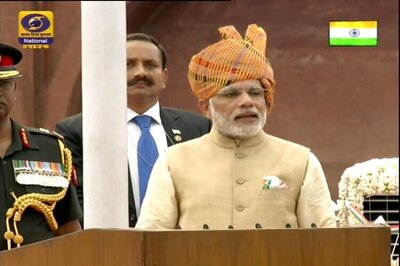
views
The student-police cadet programme announced by the home ministry is a positive step which deserves to be applauded. Just as we have the National Cadet Corps scheme for the Army and the National Social Service Scheme for civil authorities, the student-police cadet scheme will cultivate a league of youngsters in schools and colleges who are aware of police procedures and are a step ahead of their brothers in appreciating the law and order problems affecting the country.
This scheme seeks to create a cadre of young students who are well versed in basic police training and in early detection and reporting of crimes in society.
Today crime among juveniles is rising. Bad habits such as watching pornography, indecent behaviour with girls and drug abuse are infiltrating secondary school students. Peer pressure among the youth aids and abets the spreading of these bad habits. In the absence of any sort of disciplinary training and positive value education, young children are destroying their lives by substance abuse, crime, violent and obsession with sex.
In order to better implement this initiative this year, it would be advisable for Parliament to pass an act on the lines of the National Cadet Corps of 1948. Since police is a state subject, the Centre can frame a model where certain steps can be adopted by the respective state legislatures and passed into law.
The benefits of such legislation would be an organised and clearly determined hierarchy structure followed by a clear mandate and guidelines for rule making powers. Further, the passing of such a law would ensure that both government as well as private school students will have equal treatment when it comes to enrolling and serving in the corps.
It has been observed that countries which encourage students to participate in conscription training and national service scheme show higher indices for human development and prosperity. A sterling example is the state of Israel which requires citizens to serve three years compulsory service in the military. While India has never conscripted its youth for war, the implementation of a student police cadet scheme of a voluntary nature will drive participation among the youth and rally their ranks.
The nature of policing as an activity will ensure that they are acquainted first hand with the problems affecting society and will get a better perspective as they grow up, enabling them to be better informed citizens of society.
However, the state governments will have to make major arrangements before implementing the student police cadet scheme. There is a major shortage across India of police personnel available for active duty. India has 151 police per 100,000 population which is 71 less than the ratio prescribed by the United Nations. Shortage in police personnel therefore remains a question of how the state government will be able to release competent police personnel to carry out training programmes in schools across the state. Unless major efforts are undertaken to recruit more police personnel and address the shortage affecting the force, it is unlikely that the student police cadet scheme will be of any credible effectiveness.
(The author is former civil servant and an advocate currently practising law in the Bombay High Court. Views are personal)



















Comments
0 comment